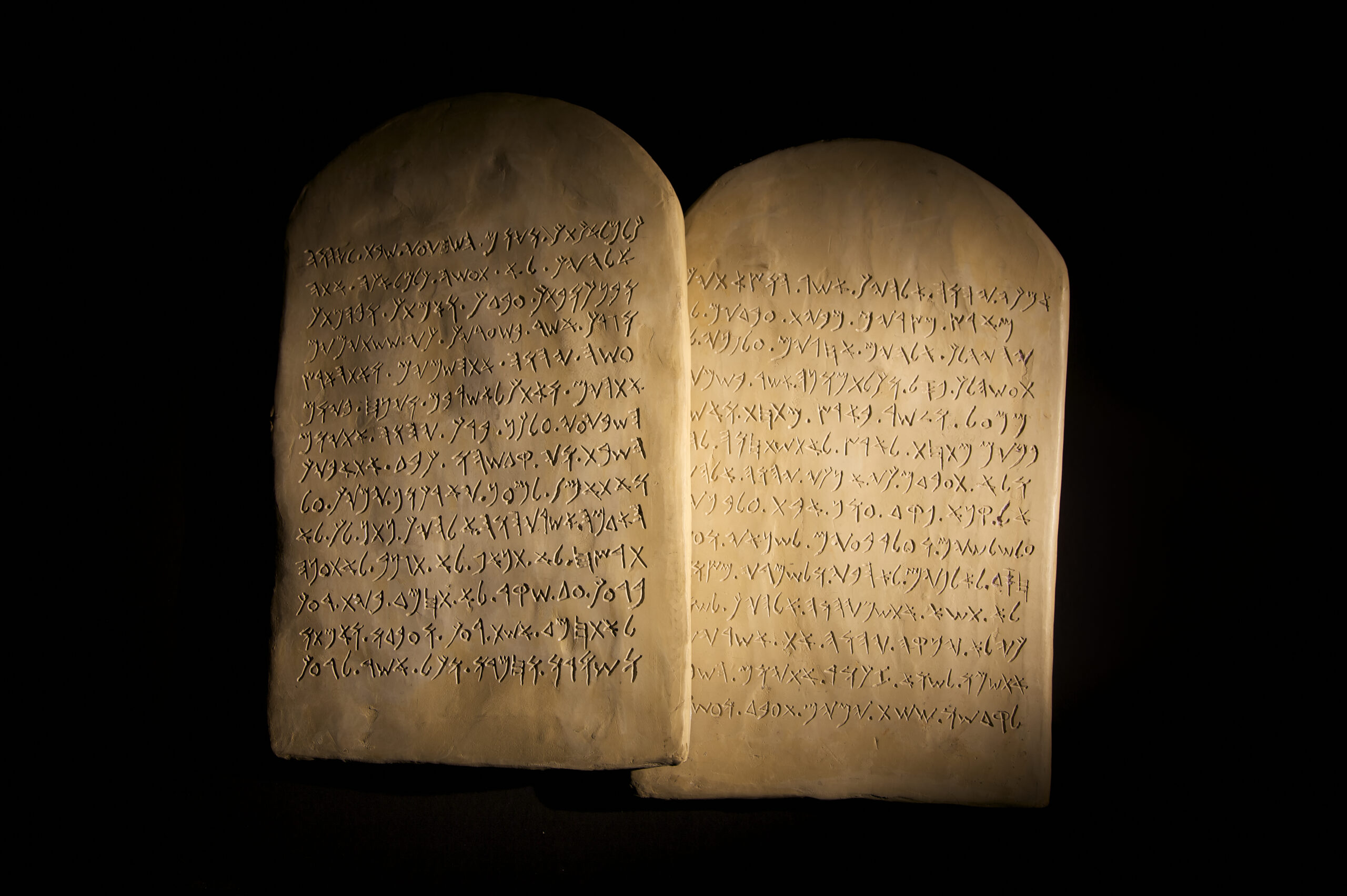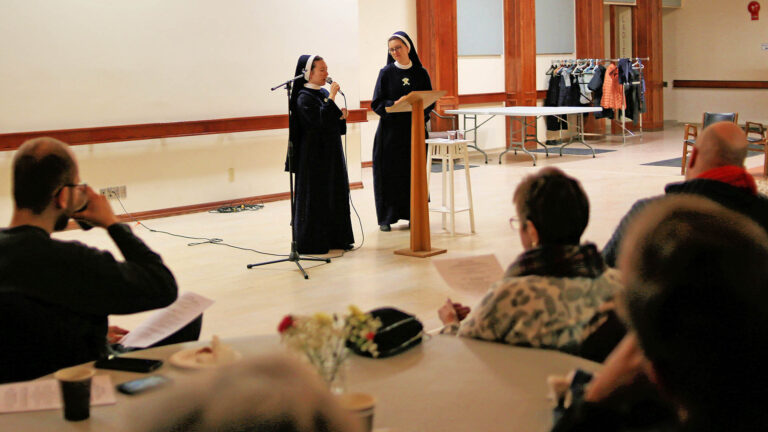Every now and then, I come across an online list of old and strange laws from around the world. Among the most memorable I’ve seen includes the fact that in the United Kingdom, it’s against the law to hold a salmon under suspicious circumstances and if you own any chickens in Quitman, Georgia, it\’s illegal to let them cross the road (you’re supposed to keep your chickens under control at all times). We have some similar laws in Alberta, where it’s against the law to paint a wooden ladder or set fire to the leg of a wooden-legged man.
 I wonder about historical circumstances prompted the need for such laws. For some I imagine it was useful in the past but out of date now, like the law in Ontario that states a hotel has the right to sell your horse if you skip out on your bill. But this is sometimes how people view the Ten Commandments: as a series of laws that were written in a different time and place. Some would see them as having been useful at the time, but out of date in the modern times in which we live.
I wonder about historical circumstances prompted the need for such laws. For some I imagine it was useful in the past but out of date now, like the law in Ontario that states a hotel has the right to sell your horse if you skip out on your bill. But this is sometimes how people view the Ten Commandments: as a series of laws that were written in a different time and place. Some would see them as having been useful at the time, but out of date in the modern times in which we live.
That view represents a misunderstanding of their purpose. The Ten Commandments (which can be found in Exodus 20:2-17 and Deuteronomy 5:6-21) “…express man’s fundamental obligations towards man and neighbor, which are always and everywhere valid“ (YouCat 351). These commandments are also sometimes called the Decalogue (Greek for “ten words”). They are inscribed – written – by the hand of God Himself on tablets He gives to Moses. No other instruction in the Old Testament is ever given this way, and the only time we ever hear about Jesus writing something down, it is written in the sand (John 8). As such, the commandments remain very important for us approximately 3500 years later.
We normally teach the Ten Commandments as follows (YouCat 349):
- I am the LORD your God: you shall not have strange Gods before me.
- You shall not take the name of the LORD your God in vain.
- Remember to keep holy the LORD’S Day.
- Honor your father and your mother.
- You shall not kill.
- You shall not commit adultery.
- You shall not steal.
- You shall not bear false witness against your neighbor.
- You shall not covet your neighbour’s wife.
- You shall not covet your neighbour’s goods.
God uses these commandments to tutor humanity in what things are contrary to the great commandment, to love God and to love neighbor (Luke 10:27). We read that “…all of human life is included with them” (YouCat 350). The first three commandments all deal with our relationship with God while the other seven deal with our relationship with our neighbor. And so, we could look at them as a starting point on the journey of faith and we can come back to them again and again as a measuring stick for ourselves in the spiritual life.
The next posts in this series will look at the commandments one by one to help us better understand what they ask of us. In this introduction, however, YouCat points out something critical. To choose to follow Christ is more than just a rulebook:
“Christianity is more than a correct life and keeping the commandments. Being a Christian is a living relationship to Jesus. A Christian unites himself deeply and personally with the Lord and with him sets out on the way that leads to true life.” -YouCat 348
And this is the key. Choosing to follow Christ, to draw near to Him, and to live your life in obedience to the Ten Commandments is about more than following a series of old rules. The desire to lead this correct life grows from the fact that God is showing us what we were made for. We put this confidence in the company that makes our cell phones our who created our car, why wouldn’t we do the same (or more) with God? We read in Jeremiah that God has plans to give us a future full of hope (Jeremiah 29:11) and Jesus Himself says that He has come to give us life (John 10:10). Passages like these point to the fact that God’s laws are timeless. They lead us away from those things that could harm us and towards that which would give us a good life, a life full of hope.
“Most people do not suspect what God could make out of them if they would only place themselves at His disposal.” -St. Ignatius of Loyola
-This is part of a series on the Youth Catechism. Mike Landry is Catholic Youth Camp director for the Archdiocese of Edmonton. He is also chaplain for Evergreen Catholic Schools, serving 10 schools west of Edmonton. Mike and his wife Jennifer live in Stony Plain with their five children.




